In March G.A.S. Foundation welcomed the first two residents supported through a new partnership with RCA BLK, the Royal College of Art Association of Black Students, Alumni & Friends. Practitioners Remi Kuforiji and Graeme Smith were selected following an open call in 2023 for an exceptional early/mid-career artist who is an RCA BLK member; and a research-based proposal from the wider RCA BLK community.
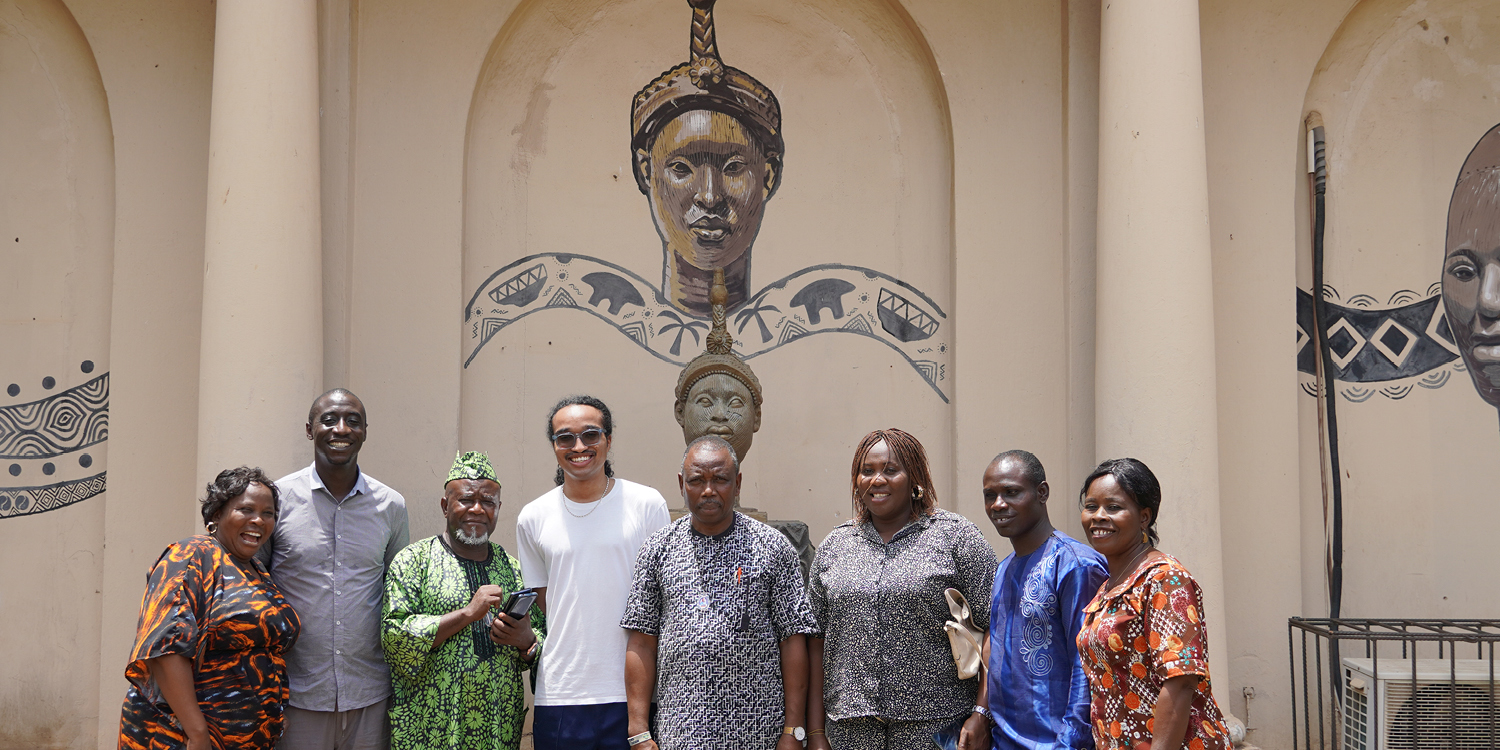 Residency Manager Adekunle Adeboye, Remi Kuforiji and museum staff at the National Museum, Ile-Ife.
Residency Manager Adekunle Adeboye, Remi Kuforiji and museum staff at the National Museum, Ile-Ife.
From his base at G.A.S. Lagos, architect, spatial practitioner, and researcher Remi undertook research trips to cultural sites across the South-West, including Ile-Ife, and the Osun-Osogbo Sacred Grove. He also toured Lagos Island discovering masquerade practices of early settlers in this community, and the Afro-Brazillian culture entrenched in the area. This latter strand of research culminated in Playful Preservation, a workshop and discursive symposium hosted by Remi at G.A.S. Lagos centred around collectively uncovering alternative realities and approaches to preservation through collaging, drawing, and experimenting on top of archival and current photographs of Afro-Brazilian architecture in Lagos. Participants were also invited to play a prototype of Anti-Monopoly: Brazilian Quarters - a board game devised by Remi where players win by preserving the most Afro-Brazilian buildings in Lagos Island.
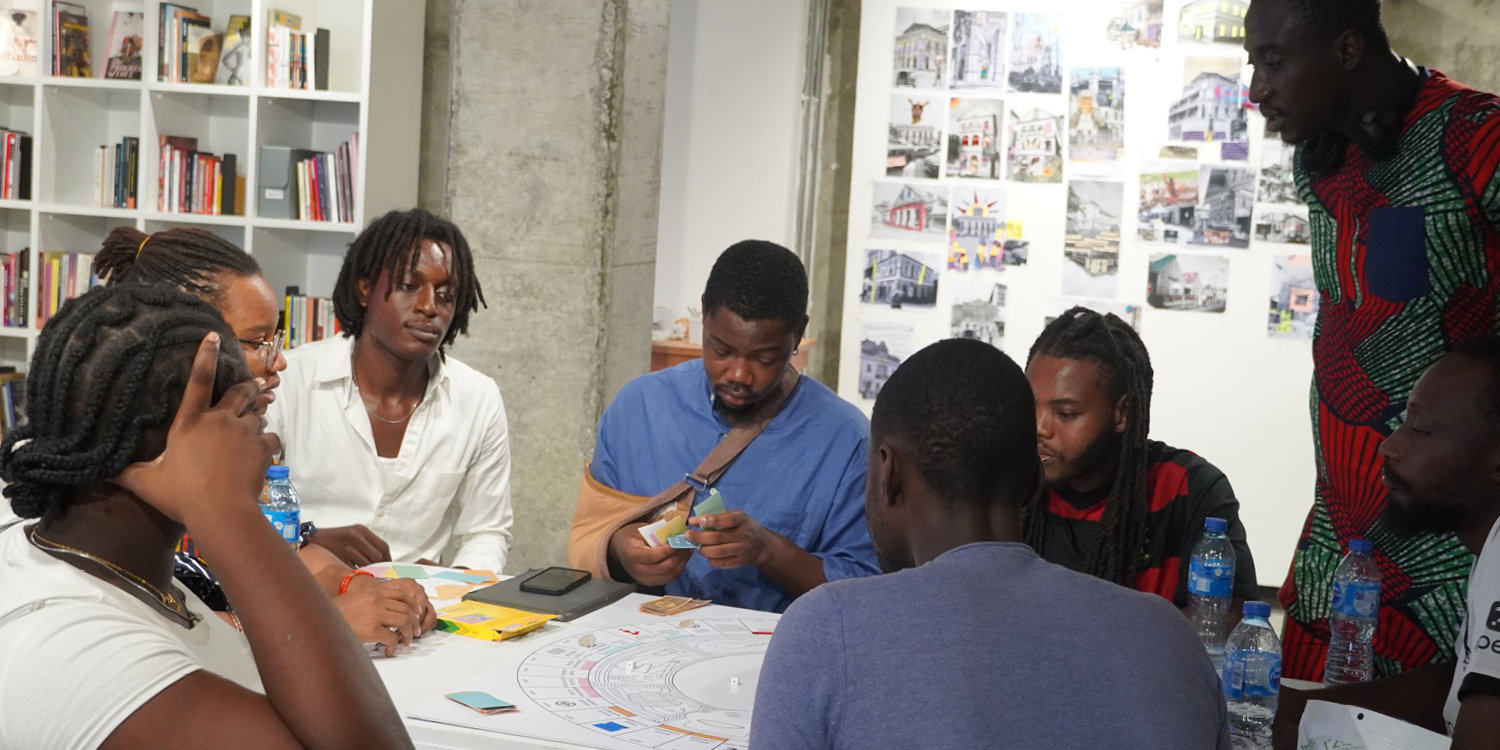 Playful Preservation workshop attendees playing a prototype of Remi's Anti-Monopoly: Brazilian Quarters board game.
Playful Preservation workshop attendees playing a prototype of Remi's Anti-Monopoly: Brazilian Quarters board game.
Remi was joined by Graeme Smith in early April, an artist and draughtsman with a background in ceramics and glass. The residency provided an opportunity for him to expand his research into 18th-century bead trade and glass craft with a focus on Sub-Saharan glass-making technology that emerged in Nigeria. Using the G.A.S. Library and Picton Archive to deepen knowledge, he was able to feel new perspectives on the complex origins and various journeys of beads that were traded and moved between Africa, Europe and the Caribbean.
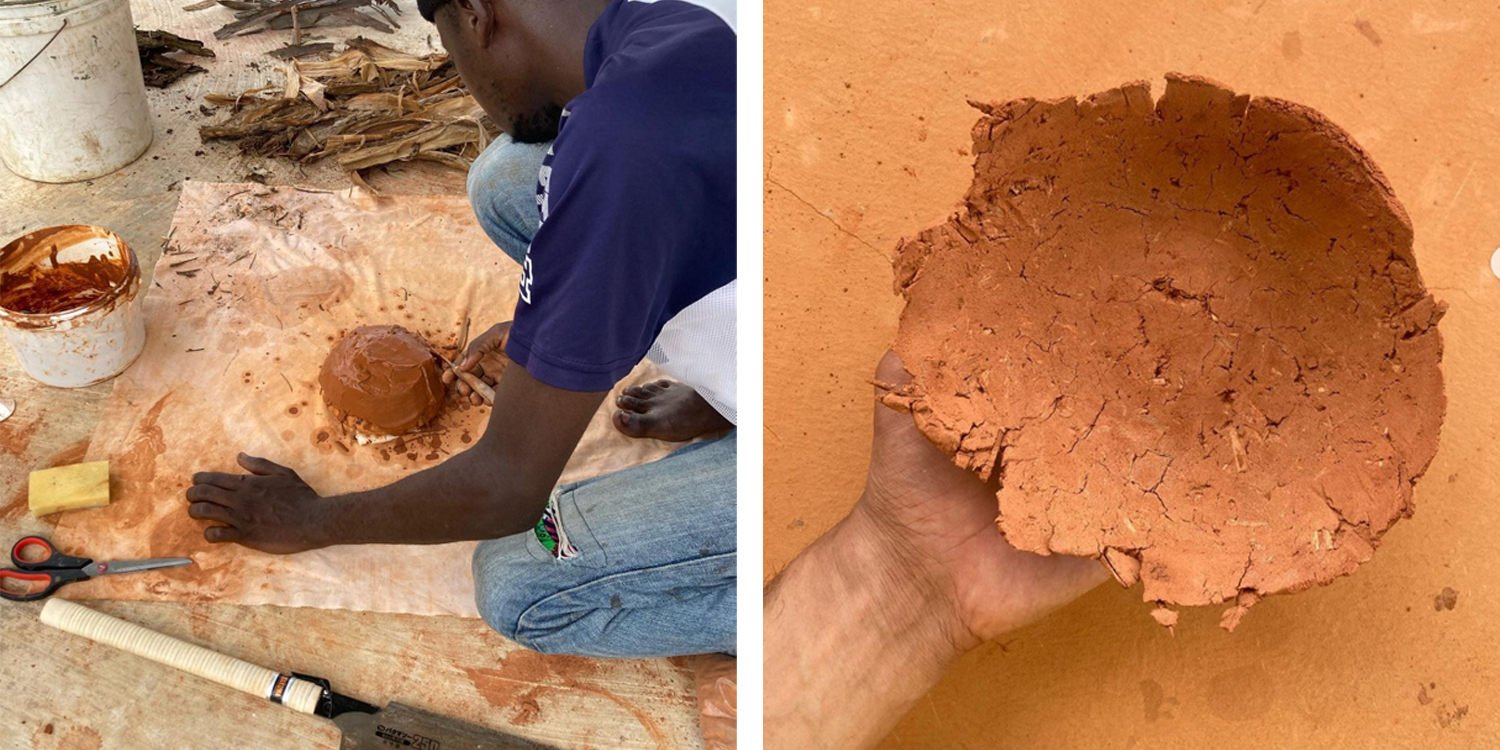 Lukman working on a bowl made using laterite clay from the Ecology Green Farm (L) and Graeme holding a finished air-dried test piece (R).
Lukman working on a bowl made using laterite clay from the Ecology Green Farm (L) and Graeme holding a finished air-dried test piece (R).
During a trip to the G.A.S. Farm House, Ikise, Graeme was able to collaborate with skilled farmer Giwa Lukman and work on material tests using the laterite soil at the Ecology Green Farm and improvised moulds. Together they developed prototypes for vessels using the soil in combination with fibres found around the farm such as mango tree bark, banana tree skins and palm bark. Graeme and Lukman also tested burnishing, sealing and colouring the dried laterite with quarts stones, iron oxide, leaves, and soap found around the farm.
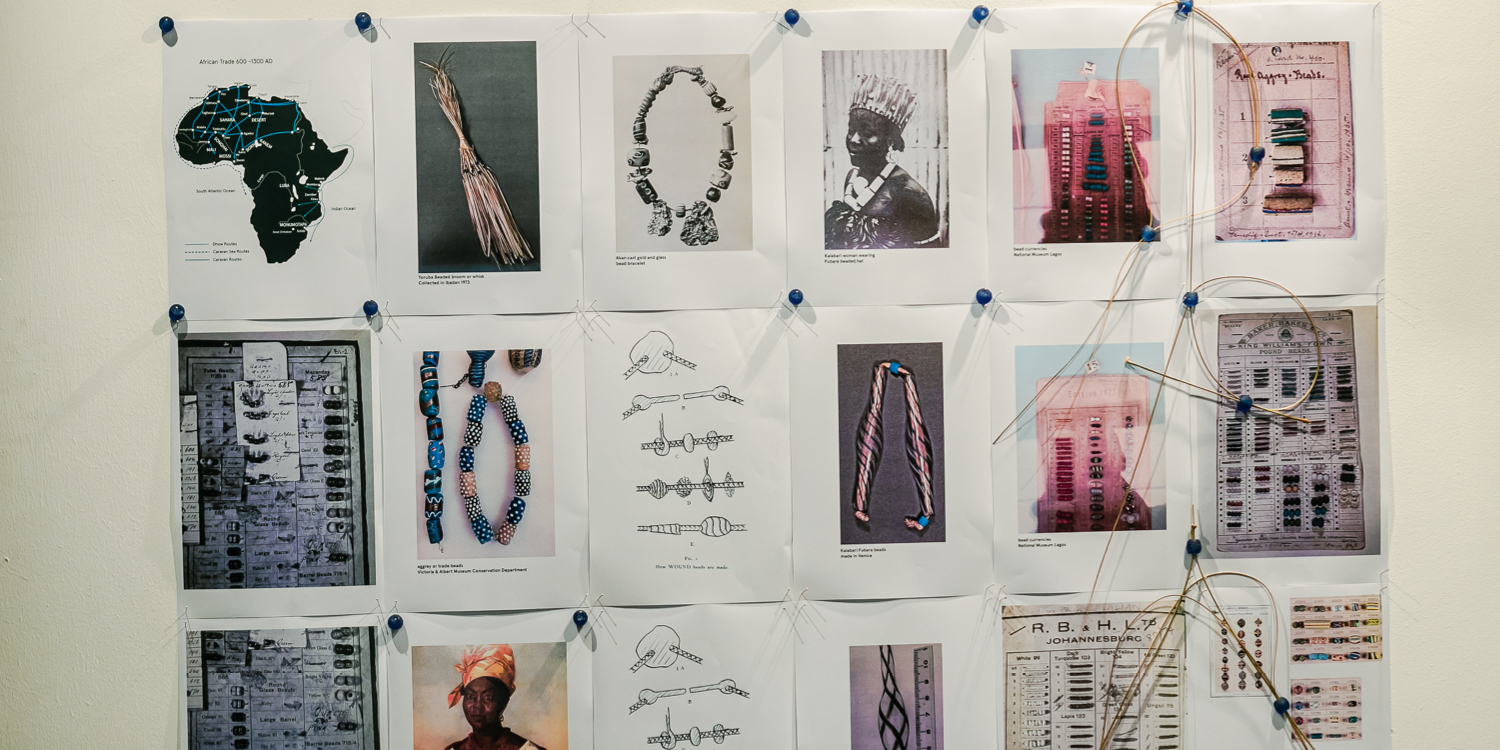 Graeme's research into 18th Century bead trade presented at his African Glass Futures event at G.A.S. Lagos.
Graeme's research into 18th Century bead trade presented at his African Glass Futures event at G.A.S. Lagos.
To conclude his residency Graeme hosted African Glass Futures where he gave an introductory talk about glass production, and its role in traditional societies around the world as currencies, markers of class, and glassmaking as a coveted skill. Attendees had the opportunity to view and interact with a curated collection of glass pieces from Bida, Niger state, crafted by Masagá glassmakers, whose traditional practice is now an endangered Nigerian Middle-Belt glassmaking tradition. Pieces were loaned by Lesley Lababidi, Ambassador of Nupe Cultural Heritage, and exhibited alongside Graeme's sculptures and experiments inspired by African glass histories.
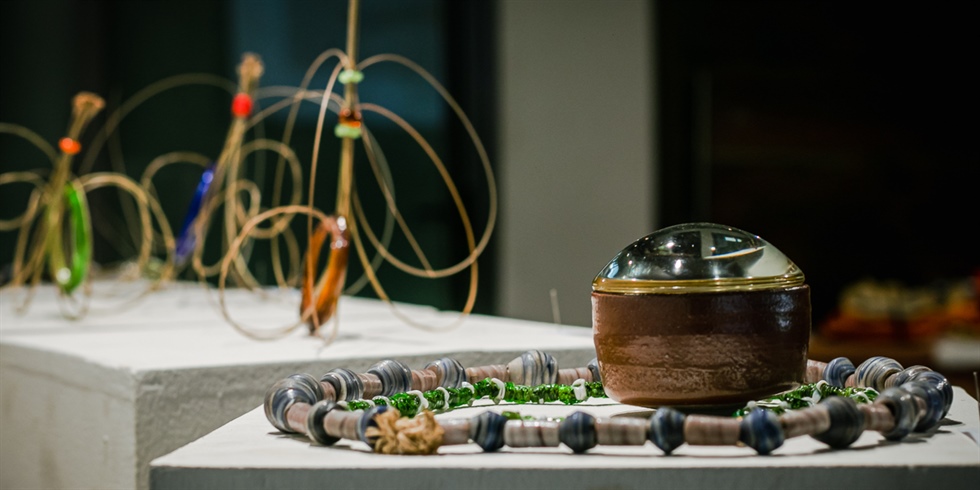 Glass pieces from Bida, Niger state, crafted by Masagá glassmakers presented alongside glass sculptures created by Graeme during his residency.
Glass pieces from Bida, Niger state, crafted by Masagá glassmakers presented alongside glass sculptures created by Graeme during his residency.
April also marked the arrival of Amanda Iheme who emerged as one of the awardees of the G.A.S. Foundation's prestigious annual fellowship. Amanda's aspirations for the eight-week residency included an exploration of African artists, particularly photographers, and the initiation of a comprehensive research study of vernacular and contemporary southwestern Nigerian architecture, as well as tropical modernism. Cultural exchange with the local community underpins Amanda’s approach to the residency and will materialise in later weeks as a research study group with local curators and researchers designed to provide a framework for engaging with collections and using select titles from the G.A.S. Library and Picton Archive as a point of departure. She plans to follow this with a photography presentation spotlighting independent photographers living and working in Lagos.
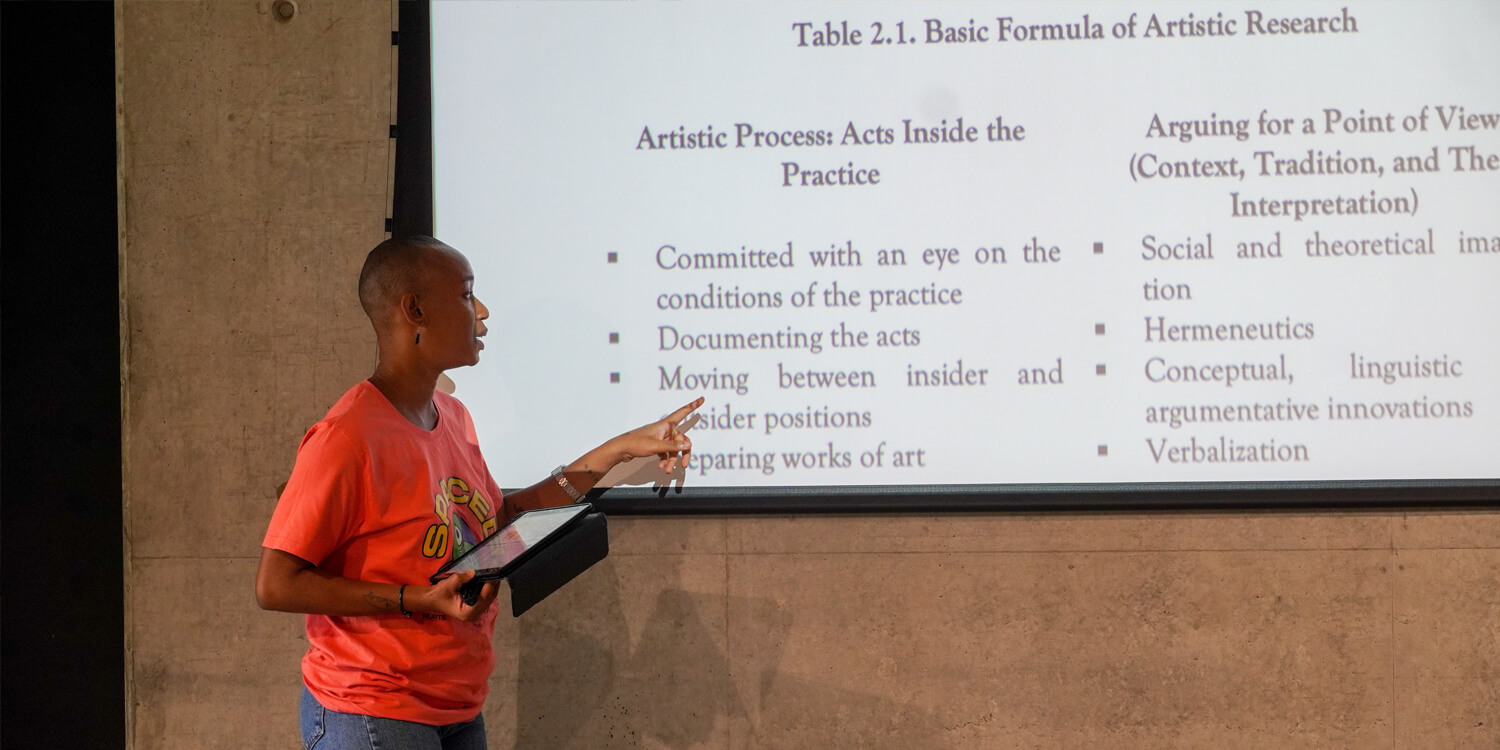 Amanda Iheme preparing for her forthcoming Art and Research workshop.
Amanda Iheme preparing for her forthcoming Art and Research workshop.
The final resident hosted during this period was Jacqueline Katesi Kalange, a multidisciplinary artist based in Kampala who was awarded the opportunity following an open call run by residency Partner Tilga Art Fund. During her first few weeks in Lagos, she connected with communities and artists working within the realm of upcycling with a particular focus on single-use plastics and second-hand clothes. She conducted cleaning drives in Bariga in collaboration with Eran Jije Project and will be working with local artists Adeoti Afeez and Henry Unuigboje to develop a series of tile samples made from non-biodegradable materials and items such as discarded denim, sawdust, crushed fired clay and acrylic gel.
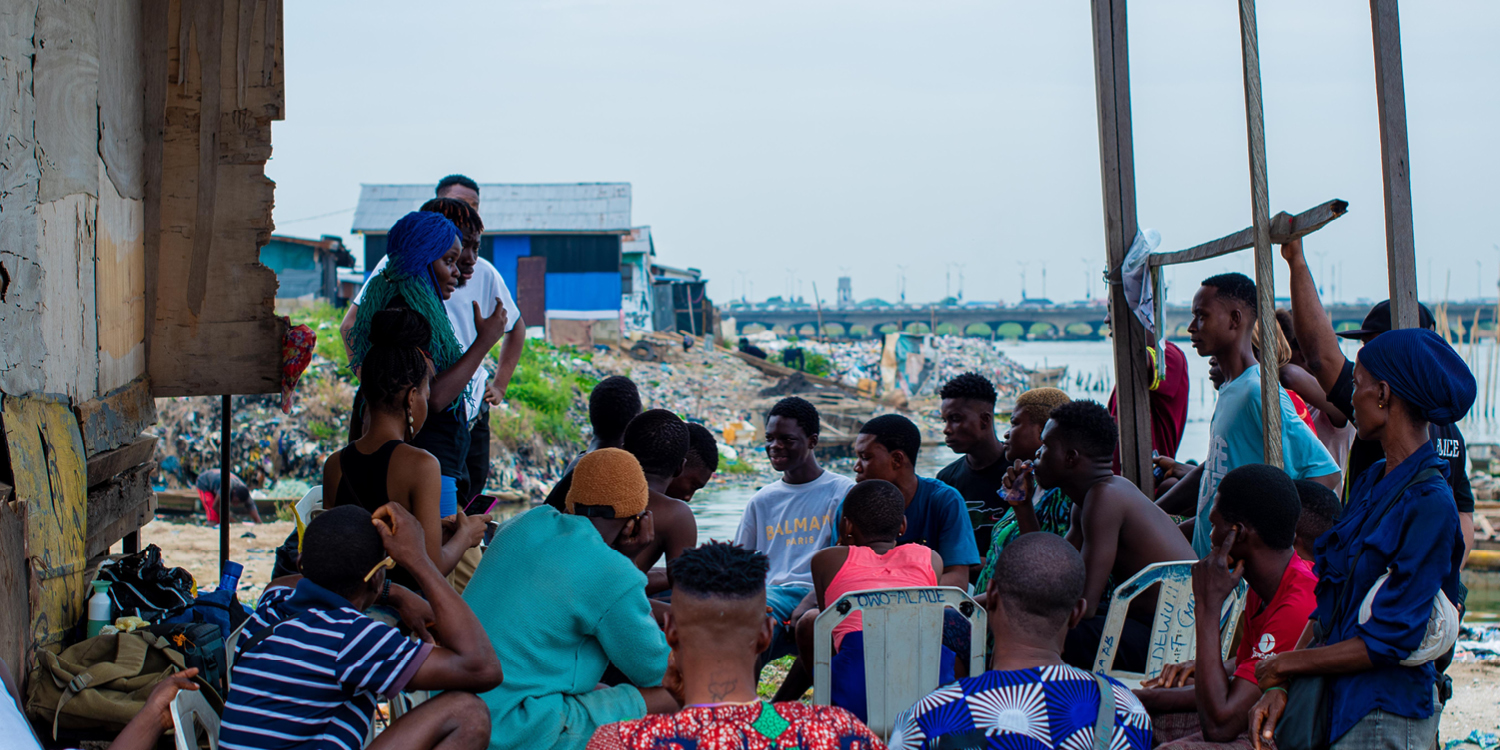 Katesi with Bariga community members at Eran Jije Project.
Katesi with Bariga community members at Eran Jije Project.